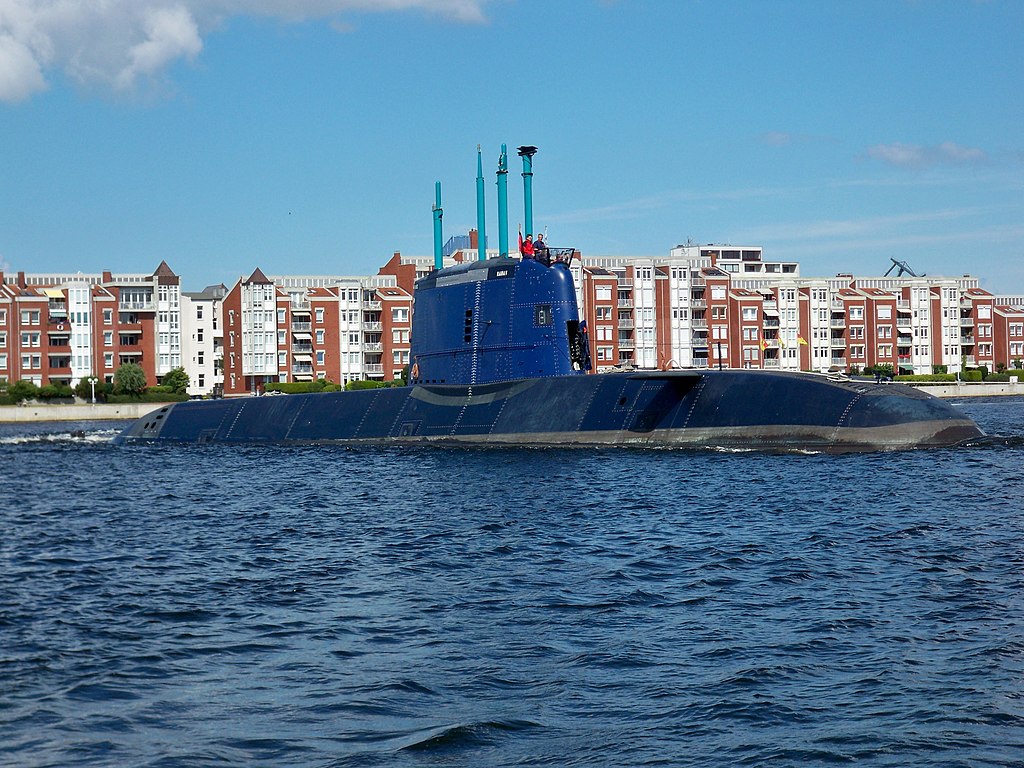Thyssenkrupp Marine Systems (TKMS) – a German company – had withdrawn from India’s Project-75-I (P-75I) three years ago. However, there has been a notable shift since then, with the German government initiating government-to-government negotiations for the project while also considering acquiring a stake in TKMS.
India’s P75I project, aimed at constructing six Scorpene-Class attack submarines domestically, remains highly ambitious yet significantly delayed. Initially cleared by the Cabinet Committee on Security in 1997 as a replacement for the Sindhughosh-class submarines, the project was slated for operational service in the late-2020s but is yet to commence.
In 2020, the Indian government shortlisted two shipyards and five foreign defense companies for P75i. Mazagon Dock Limited (MDL) and Larsen & Toubro (L&T) were designated as Strategic Partners (SPs) for the indigenous construction, issuing requests for proposals (RFPs) to collaborate with foreign Original Equipment Manufacturers (OEMs).
However, challenges arose during the selection process. In July 2021, MDL sought partners with a functional Air-Independent Propulsion (AIP) system, disqualifying three contenders – Naval Group (France), Rosoboronexport (Russia), and Navantia (Spain) due to their lack of sea-proven AIP-equipped submarines.
AIP enables a non-nuclear submarine to function without relying on atmospheric oxygen (either by surfacing or utilizing a snorkel) while also recharging the vessel’s batteries.
This left only two contenders: Thyssenkrupp Marine Systems (TKMS) from Germany and Daewoo Shipbuilding and Marine Engineering (DSME) from South Korea.
P-75(I) Setback: TKMS Withdrawal
P-75 faced a major setback in August 2021 when TKMS decided to withdraw from the program. Their withdrawal was attributed to concerns regarding the liability and technology transfer clauses outlined in the request for proposals (RFP).
TKMS expressed dissatisfaction with the lack of flexibility in the tender, particularly criticizing the stringent liability clause, which designated the selected foreign firm as the sole responsible party for submarine construction.
However, the project’s momentum peaked in June 2023 when TKMS and MDL joined forces to back the construction of AIP-capable submarines in India. Meanwhile, L&T teamed up with Navantia from Spain, signaling a shift in the project’s competitive landscape.
The German Interest In P-75I
In collaboration with TKMS, the German government has suddenly emerged as a key player in India’s submarine project, marking a significant development. Several noteworthy events underscore this newfound interest:
High-Level Discussions
During the visit of the German defense minister in June 2023, discussions at the highest level highlighted Germany’s keenness to engage.
The German defense minister advocated for TKMS during talks with India’s defense minister, emphasizing the potential of the submarine deal to become a flagship project between the two nations.
Minority Stake Consideration
In September 2023, a Reuters report indicated that the German government was considering acquiring a minority stake in Thyssenkrupp Marine Systems (TKMS). According to the report, TKMS was also exploring talks with various other potential investors, including the private equity firm Carlyle.
Proposed Govt-To-Govt Deal
Germany’s proactive stance became more apparent in January 2024 when it proposed a government-to-government deal to supply six advanced conventional submarines to India under P75I, signaling a deeper commitment to bilateral defense cooperation.
Full Support
Germany’s Ambassador to India, Philipp Ackerman, expressed full support for negotiations between TKMS and the Indian Navy for P75I. He affirmed Germany’s commitment to teaming up with an Indian dockyard to build high-tech submarines, with the government wholeheartedly backing the ongoing negotiations.
Export Restrictions Eased
In April 2024, Germany eased export restrictions for India, aiming to strengthen military cooperation between the two nations. This move reflects Germany’s commitment to deepening military-to-military relations with India.
Meanwhile, Mazagon Dock Shipbuilders Limited (MDL), the Indian partner of the TKMS, has begun work on the first phase of submarine design, TheHindu reports.
While reports suggest Germany offering its SDW class dolphin submarine based on the AIP system to the Indian Navy, official confirmation is awaited.
The dolphin class submarine, a diesel-electric model, was originally developed in Israel and constructed by Howaldtswerke-Deutsche Werft (HDW) in Kiel, Germany, primarily for the Israel Navy.
Thyssenkrupp Marine Systems is viewed as the preferred manufacturer for the project, possessing expertise in air-independent propulsion (AIP) technology, crucial for extending non-nuclear submarines’ underwater capabilities.

If awarded the contract, Thyssenkrupp Marine Systems would lead the engineering and design aspects, while its Indian counterpart would handle local construction and delivery, as outlined in an initial agreement signed by the companies.
Conclusion
The surge of interest from the German government in India’s P-75I Submarine Program is not only a testament to the evolving dynamics of global security but also a reflection of the changing landscape of defense cooperation.
The conflict in Ukraine and the shifting security outlook in Europe have undoubtedly played a significant role in Germany’s determination to expand defense collaboration.
Furthermore, India’s proactive efforts to diversify its sources of military hardware, moving beyond traditional partners like Russia, underscore the strategic importance of Germany’s emerging role in submarine initiatives.
In essence, Germany’s increasing involvement in India’s submarine program marks a significant milestone in bilateral defense cooperation, potentially enhancing the strategic maritime capabilities of both nations.
- Penned By: Shubhangi Palve
- Contact the author at shubhapalve(at)gmail(dot)com.




